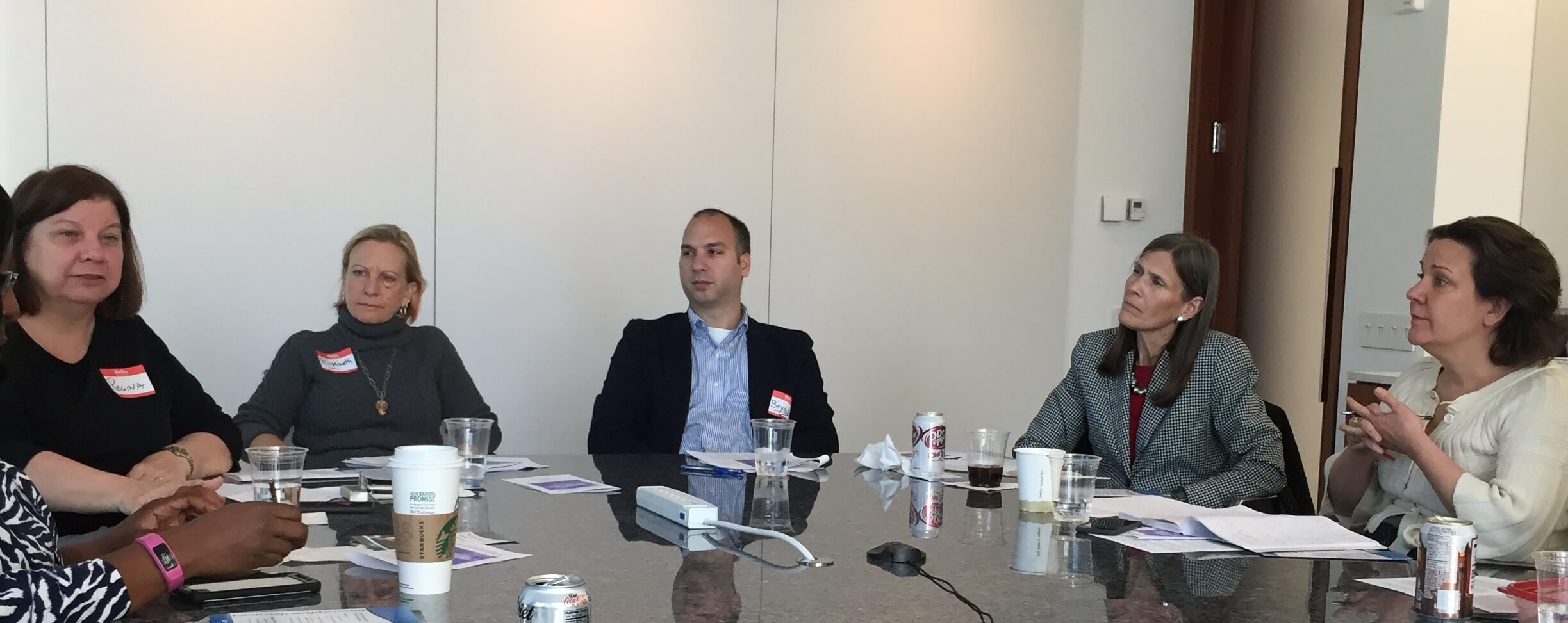
Pro Bono Week Recap: Serving on Nonprofit Boards
By Erin Mee
Serving on nonprofit boards can help expand access to justice and give back to the community, while at the same time providing board members an opportunity to expand their networks and build meaningful skills. So explained the speakers at Washington Council of Lawyers’s DC Pro Bono Week panel discussing service on nonprofit boards.
The panelists included Regina Hopkins (Assistant Director, D.C. Bar Pro Bono Center), Susie Hoffman (Public Service Partner, Crowell & Moring; President, Crowell & Moring Foundation), Bryan Nese (senior associate, Mayer Brown; member, Children’s Law Center Advisory Board), and Elizabeth Arledge (Deputy Director, Voices for Civil Justice).
Hopkins started by describing the duties that accompany nonprofit board membership: care, loyalty, obedience, and to inform. She added three important pieces of advice: First, recognize that there’s a time commitment and be realistic about whether you can honor your commitment. Second, bring your critical eye and your independent professional judgment. Third, be willing to ask tough questions.
Hoffman then looked at the benefits of nonprofit board service. Board service teachers skills that students may not have learned in law school—including leadership, fundraising, financial analysis, collaboration, and consensus building. For instance, Hoffman was able to identify role models and incorporate their leadership methods into her own work and board service, and she added that many boards offer members free courses on finance so that they will be able to effectively advise their organizations.
Adding the perspective of a younger lawyer, Nese identified three benefits to board service: expanding your network, increasing your visibility, and developing your skills. While serving on a board, Nese learned how to raise money, plan events, and exercise leadership. At the same time, he built connections, improved his interpersonal skills, and met other professionals (including non-lawyers).
Finishing up the panel, Arledge offered advice for becoming an effective board member. Her most important tip: Choose an organization that you’re passionate about, because that will make it easier to participate and contribute.
All told, serving on a nonprofit board is a big responsibility, but it brings major benefits: giving back to your community, expanding your network, and developing a range of important skills. For a public-interest-minded lawyer looking to make a difference, board service is a worthwhile pursuit.
Erin Mee is a law student at American University, Washington College of Law.






